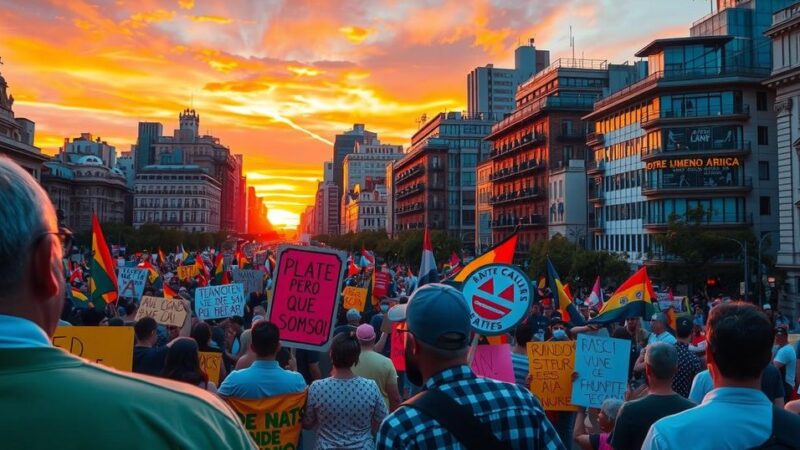Brazil’s President Lula is currently promoting policies that could exacerbate the climate crisis, even as scientific findings reveal that the situation is more dire than previously believed. Brazil risks severe consequences, including the collapse of the Amazon rainforest, increased droughts, and high mortality rates due to extreme heat. Immediate policy changes are necessary to mitigate these impending threats.
The global climate crisis is reaching alarming levels, with urgent actions required to significantly lower emissions from fossil fuels and prevent further deforestation. Brazil stands to suffer severe consequences if global warming continues unchecked, yet much of the Brazilian government, aside from the Ministry of Environment and Climate Change, is advocating for emission-increasing projects. President Lula has yet to exhibit awareness of the gravity of this crisis and the ramifications of his policies on Brazil’s climate future.
Recent scientific studies have revealed that the climate situation is worse than previously understood. Notably, a paper led by climate expert James Hansen indicates that the effects of certain atmospheric pollutants have masked the true impact of greenhouse gases, suggesting that warming rates may be accelerating more quickly than anticipated. Hansen declared that the goal of keeping global temperatures below 2°C is effectively unattainable, posing significant risks including the potential collapse of the Amazon rainforest.
Two additional studies published in “Nature Climate Change” indicate that record high temperatures may persist beyond temporary events and are not simply anomalies. These findings undermine the Intergovernmental Panel on Climate Change’s previous requirements for long-term trend validation, stressing the urgent need for immediate action before reaching critical climate thresholds.
If uncontrolled warming occurs, Brazil could face catastrophic outcomes, particularly the loss of the Amazon rainforest. This would threaten essential rainfall systems that sustain both urban and agricultural environments, greatly affecting food production. Additionally, altered climate conditions could lead to extreme droughts, drastically transforming the northeast region into a desert.
Increasing heat waves in urban areas like Rio de Janeiro already demonstrate the severe health risks posed by rising temperatures, with recent studies linking high humidity and heat to mortality rates. With projections indicating vast regions of Brazil becoming uninhabitable due to extreme temperatures, the promotion of policies that exacerbate these dangers is irresponsible.
Moreover, the prevalence of heat becoming lethal will escalate as temperatures rise above thresholds conducive to human survival. Authorities like the CDC and WHO have established temperature limits where cooling systems become ineffective, emphasizing the dire risks Brazilians will face if current policies persist. The potential for mass mortality should be a compelling catalyst for President Lula to reconsider his government’s direction with regard to climate policies.
In summary, Brazil’s situation regarding the climate crisis is critical, necessitating immediate action to lessen emissions and protect its vital rainforest ecosystems. Scientific evidence indicates that the impact of climate change is more severe than previously understood, jeopardizing the nation’s environmental integrity and public health. Without a swift policy shift from President Lula and his government, Brazil faces unprecedented challenges that could render vast areas uninhabitable and significantly elevate mortality rates. The responsibility lies heavily upon the leadership to avert these impending disasters.
Original Source: news.mongabay.com






